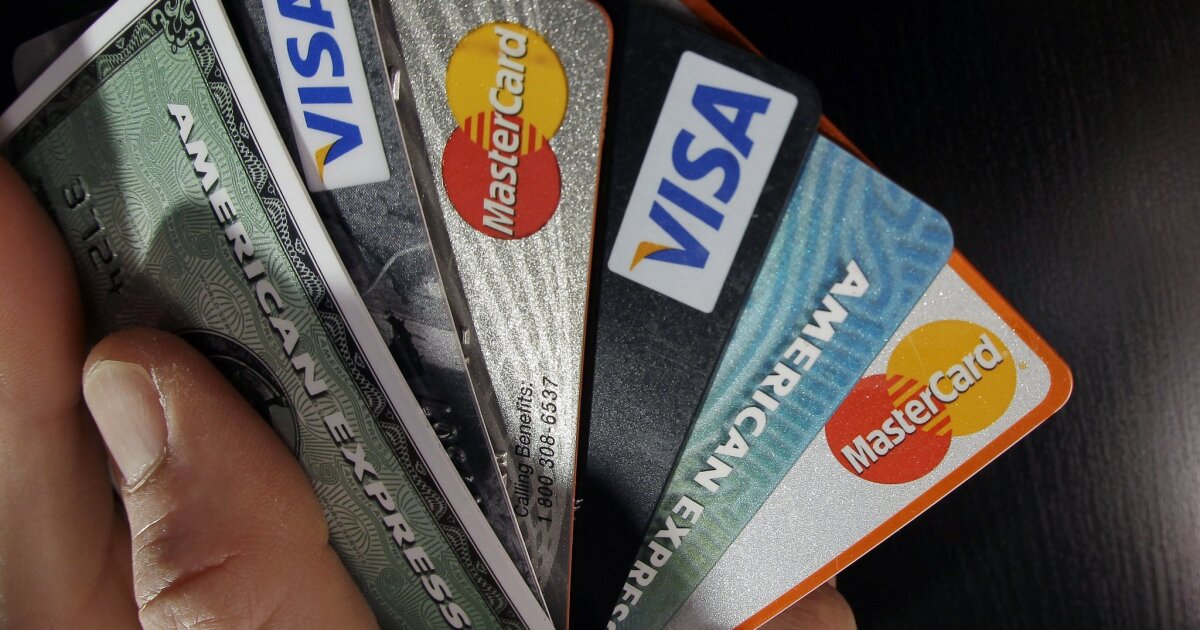
Cash registers across America should post a new holiday shopping sign: The richer you are, the less you pay. That may sound outrageous, but it’s true.
Though it’s unlikely to be advertised on a sign anywhere soon, the U.S. payment system has turned cash registers into engines of economic inequality. Driving this new system, in which the wealthy receive large discounts and the non-wealthy don’t, are ever more lucrative credit card reward programs and the government policies that promote them.
What’s in your wallet? The answer depends on how much money you have. If you have been doing well financially for a while, chances are you’ve qualified for an elite credit card — with reward perks like frequent flier miles, hotel stays or cash back every time you shop. The wealthier you are, the higher the rewards and bigger the perks the card companies offer.
How you pay and how much you make is strongly correlated. If you make less than top dollar, you can still qualify for a card, but it’s likely to have fewer rewards (3% becomes 1%). And if you’re among the half of Americans considered to have “subprime” credit, then you are more likely to be using your debit card with no rewards program at all. Folks at the bottom of the income list tend to use cash or prepaid cards, generating no perks. The payment system is designed this way, as research from the Federal Reserve Bank of San Francisco shows.
Advertisement
The economics of modern credit cards are often misunderstood. The bulk of card-issuers’ profit, particularly from the luxury high-end cards, comes not from interest paid by those who carry a balance on their cards, but rather from the so-called swipe fees paid by merchants, which can range from 3% to 5% of everything you buy. American Express, for example, booked in excess of $24 billion in swipe fees in 2018, more than three times as much as their net interest income. Credit card companies’ most profitable customers are the ones who shop a lot and pay their bills on time.
Card issuers share some of this swipe-fee bounty with their customers, through cash-back, free points and other perks. The more money you have to spend the more you can earn. AmEx alone spent almost $10 billion in 2018 on card member rewards. Adding fuel to this fire is U.S. tax policy, which categorizes rewards as tax-free “rebates,” thereby making a rebate of 2% or 3% more like a 5% raise at work.
The scale of this redistribution is huge and growing. Consider a wealthy family that racks up charges of $250,000 a year on a top-of-the-line credit card that gives them 2.5% cash back. That family gets a $6,250 stocking stuffer from the payment system elves—worth more than $10,000 in pre-tax wages. Meanwhile, families using cash or debit cards, who tend to be at the lower end of the earning scale, get nothing in return for their spending.
Compounding this income inequality are the economics facing merchants. Bound by contract and consumer expectations to charge the same price to all customers, businesses can’t charge more to those who use high-end credit cards, even though the merchants pay high fees on those cards.
Advertisement
Economic logic leads to the conclusion that lower-income consumers and merchants are subsidizing the benefits the wealthy receive. Put a different way, if the merchant could pass the fees they pay for accepting a rewards credit card on to the customer using it, wealthier people would see higher prices, or customers using cash or debit would pay less.
What can be done to stop the payment system’s continuing evolution into yet another engine of income inequality? In 2010, the federal government and 17 states sued the major credit card companies, including American Express, for prohibiting merchants from incentivizing customers to use cards that charged lower swipe fees. But last year the Supreme Court, in a 5-4 vote, with Clarence Thomas writing for the majority, upheld the card companies’ right to prohibit merchants from passing along the costs of high-reward cards to customers who chose to use them. It was a costly decision for merchants, most consumers, and a setback for policies reducing income inequality.
One step that could help is for Congress to enact a law precluding such limits on merchants. Congress should also consider whether tax policy should be changed to no longer treat rewards to high-end cardholders as nontaxable rebates.
Absent changes to this system, new payment technologies, like China’s digital wallet revolution, are unlikely to catch on in America. Innovations that reduce the inefficiency and expense of our payment system will simply fail to generate enough perks to motivate consumers to ditch their rewarding plastic. The result will be a nation where income inequality is exacerbated every time you buy.
Aaron Klein is a fellow in economic studies at the Brookings Institution and served as deputy assistant secretary for economic policy at the Treasury Department from 2009-2012.
"card" - Google News
December 20, 2019 at 06:00PM
https://ift.tt/35HExT5
Opinion: How credit card companies reward the rich and punish the rest of us - Los Angeles Times
"card" - Google News
https://ift.tt/33FwZiF
Shoes Man Tutorial
Pos News Update
Meme Update
Korean Entertainment News
Japan News Update
Bagikan Berita Ini















0 Response to "Opinion: How credit card companies reward the rich and punish the rest of us - Los Angeles Times"
Post a Comment